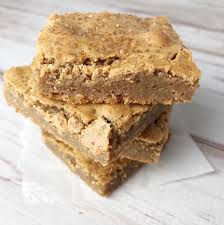Parsha Inspired Menus - Vayetzei
- tagoodquestions
- Nov 25, 2025
- 3 min read
Over the last few weeks, I've been take note of the instances of expressed emotion in our Torah portions. We have expressions of love (Isaac to Rebecca), anguish (Esau after losing the blessing), disgust (Rebecca over the Canaanite wives), and more. Sometimes emotions and feelings are read into the Torah through commentary and I found a really interesting one in our Torah portion this week. I discovered it because I was digging into the detailed account of the interaction of Jacob and the other shepherds at the well.
There before his eyes was a well in the open. Three flocks of sheep were lying there beside it, for the flocks were watered from that well. The stone on the mouth of the well was large.
When all the flocks were gathered there, the stone would be rolled from the mouth of the well and the sheep watered; then the stone would be put back in its place on the mouth of the well.
Jacob said to them, “My friends, where are you from?” And they said, “We are from Haran.”
He said to them, “Do you know Laban the son of Nahor?” And they said, “Yes, we do.”
He continued, “Is he well?” They answered, “Yes, he is; and there is his daughter Rachel, coming with the flock.”
He said, “It is still broad daylight, too early to round up the animals; water the flock and take them to pasture.”
(Bereshit 29:2-7)
To move the story of the Jewish people along, we need to get to the meeting of Jacob and Rachel, but why the divergence into Jacob's take on the pasturing habits of the other shepherds? Sforno says that this points to Jacob's character "He thought they were shirking their duties. The righteous are disturbed by injustice even when they are not the victims." However, I really like Chizkuni's idea...I literally read it and said "Oh! That's clever" out loud. Chizkuni says "Why would

a stranger like Yaakov dare to order these shepherds around as if they were his employees? He was afraid that Rachel would join the shepherds, whereas he was interested in having a private conversation with her." Jacob had seen Rachel and wanted to speak to her alone! This fits with the rest of the story and gives a really intriguing answer as to why this line is mentioned in the parsha. In honor of the discussion of pasturing practices, I'm going to make roasted green beans, which look a little like stalks of grass. I usually roast the green beans with some olive oil, salt, pepper, and garlic powder at 400 for about 15-20 minutes. You can add so many other spices as options, so be creative!
For the second dish, I wanted to highlight the repetition of God's promise to Abraham that he also makes to Jacob.
Your descendants shall be as the dust of the earth; you shall spread out to the west and to the east, to the north and to the south. All the families of the earth shall bless themselves by you and your descendants. (Bereshit 28:14)
This becomes an intergenerational promise or blessing. I like the idea of the continuity of good. There is much research about intergenerational trauma, and it has significant impact on so many who have descended from those who experienced trauma. But I would like to raise up the importance of looking for our intergenerational blessings. What has been passed down to us that

was a blessing to our parents AND to us? What can we hope to pass down to our children and beyond? Thinking about this particular blessing, "your descendants shall be as the dust of the earth" made me think about dust and the way a layer of dust can look and as I thought about how that played into a food, I thought of my mom's Maple Squares recipe. While fitting all year round, it seems even especially appropriate in the fall. (recipe in image below).
Shabbat Shalom & B'Tayavon!





Comments